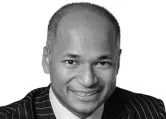Central banks are repeating Mr Greenspan’s mistake
By Moorad ChoudhryAlan Greenspan, chairman of the US Federal Reserve during 1987-2006, was often heralded as the most celebrated central banker of modern times. The years after 2008 have not necessarily been kind to his professional reputation however. A number of commentators including Paul Krugman and George Cooper (the latter’s work “The origin of financial crises: Central banks, credit bubbles and the efficient market fallacy” is a very worthwhile read for all students of finance) have highlighted the long-term impact of the “Greenspan put” and how the era of cheap money during 2000-2006 was a prime causal factor of the financial crash.
But it appears that any lessons learned from that experience are being rapidly forgotten and we’re in the same danger all over again, although this time paradoxically while much of the Western world and Japan are still struggling to come out of recession. It would be rotten bad luck to build up a bull market into a crash while still recovering from the last one!
This year equity markets have been reaching new highs all around the world, but without any accompanying fundamentals. but based on not very much, and the trend has continued. Last month the Dow Jones industrial average closed above 15,000 for the first time, the German DAX hit record levels and the FTSE100 has surpassed its all-time high of 6930, last reached in 1999. The Nikkei has risen by more than 60% in 6 months.
Is anything “real” supporting this increase in valuation? Possibly in the US, where with each passing month’s statistics it appears the country has turned the corner. But in Europe the euro’s problems haven’t gone away and the UK is struggling with all sorts of output and productivity problems. Japan has applied “Abenomics” to try to get out of recession but it’s far too early to tell if sustainable growth has resulted..
But institutional investors are not so gauche as to think that all this equity market froth is due to something as obvious as economic fundamentals. The rise in equity prices is due almost exclusively to central bank action. Continuing low interest rates, quantitative easing and asset purchases have contributed to an environment where the equity investor thinks he has nothing to lose: prices rise on any sign of good news, but even if the news is bad there is no need to worry because the central banks will pump in more money and buy more assets. So one can’t lose!
But just as with a real-estate boom, price rises based on cheap money are as solid as a house of cards and what we are witnessing now is yet another financial asset bubble. It isn’t just the Fed, BoE and ECB either, the Bank of Japan is at it, central banks around the world are cutting interest rates to record lows and currency manipulation to assist exports is all the rage.
We warned back in 2009 and 2010 that QE and zero interest rates are handy bits of medicine when the world is facing depression, but carry it on too long and they turn into a crutch that is harder to pull away with each passing month. The markets need to stand on their own two feet but right now it feels like any indication of tightening monetary policy will bring the cards crashing down. Notice how the merest snippet from Ben Bernanke two weeks ago that there may be no new increase in asset purchases saw equity markets tumble.
The paradox is that a central bank would only start tightening once it felt that the economy had turned. In other words, an interest rate rising cycle and wind-down of QE are signs of market strength, not weakness. But the day equity market prices reflect economic logic is a long way off. So what we have is a vicious circle of cheap money, unsustainable market bubbles, continuing cheap money and then the bust. And the longer QE continues the more difficult it will be to unwind it. It’s a dangerous addiction to get into.
Just like the last time. The world’s central banks are making the same mistake the Federal Reserve did in the years leading up to 2007. And the longer it goes on, the harder it is to withdraw monetary policy support for asset prices and the worse the bust will be when equity prices do undergo their next “correction.”



















 Advertise
Advertise











